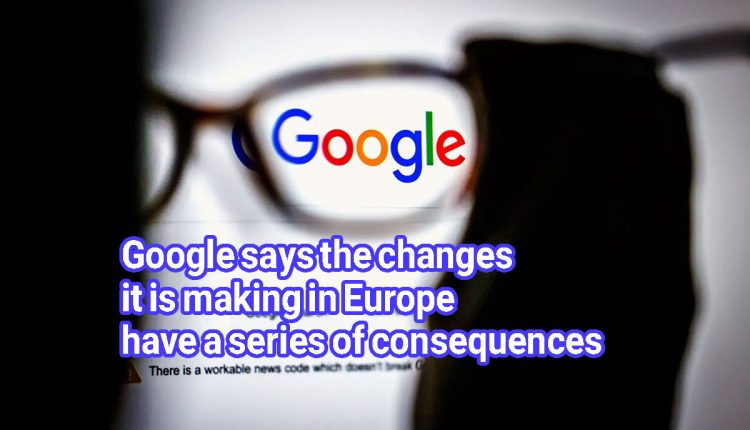With pressure from Europe, Google made a major change to all of its services
In response to the European Union’s far-reaching DMA law, Google made a major change to all of its services.
In a press release, Google announced a major change to its services for European users to comply with the Digital Markets Act (DMA), which has been making a lot of noise over the past year. Thanks to the new change, European users can determine how much of their data is shared.
More specifically, Google says that based on its new policy, it will allow European users to set the data sharing settings for all of the company’s services to “all, some services, or none of the services.”
Listed services include YouTube, search engines, push notifications, Google Play, Chrome, Google Shopping, and Google Maps.
Google’s new policy is not entirely rigid. This company collects and shares user data when data sharing is necessary to complete a specific process (for example, go to Google Shopping to buy a product through Google Play). Google says this note in its new policy is an effort to comply with government laws, prevent fraud, and protect users.
What is stated in the new statement of Google is not the biggest change that the company experienced in response to the approval of the DMA law. This far-reaching law, which will come into effect on March 6, 2024, includes frameworks to add “interactivity” to messengers and increase competition in different markets. For example, Google is no longer allowed to rank its services higher than competitors in its search engine.
Several major technology companies have taken a stand against the DMA and are lobbying for changes. Unlike Apple, Meta, and TikTok, Google has decided not to appeal, but the three companies do not agree to be added to the gatekeeper list.
Google says the changes it is making in Europe have a series of consequences. For example, if the user disconnects the search engine services, YouTube and Chrome, the content recommendation system on YouTube will be disabled for him. If the connection between the search engine and Google Maps is broken, the Google Maps service will no longer be able to suggest different places to the user, such as nearby restaurants.

